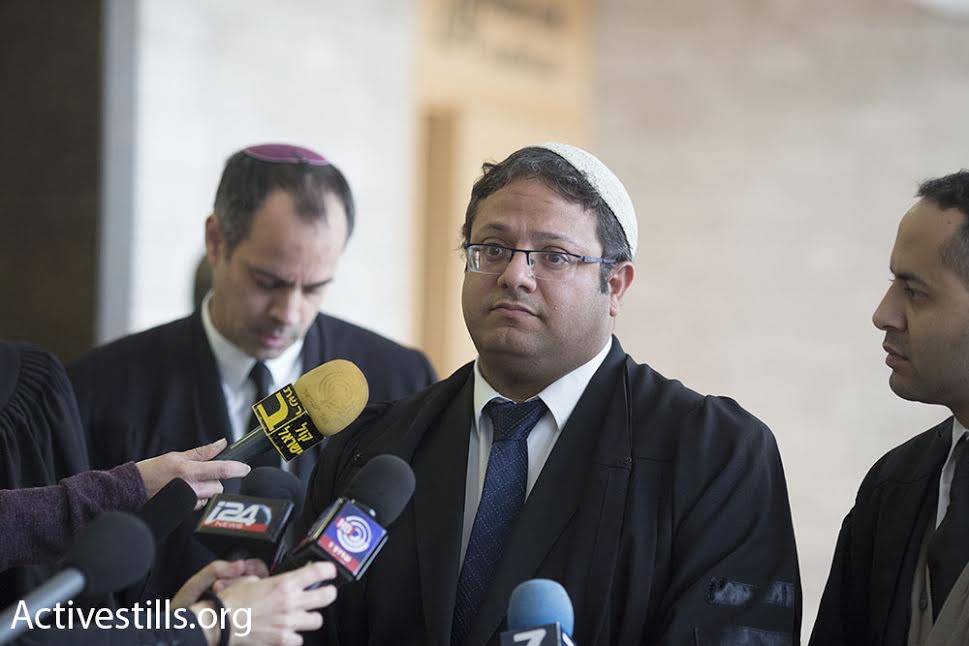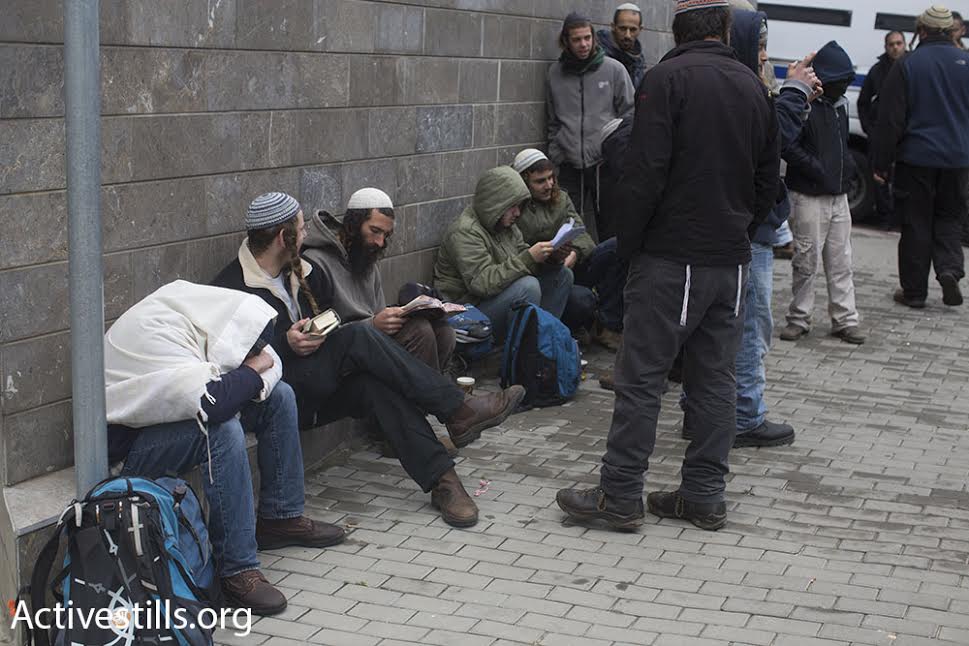Had a Palestinian committed the exact same crime in the exact same location, he would find himself in an entirely different justice system. Maybe ‘fair’ is relative.

Israel’s justice minister on Sunday said she “hopes” that the alleged Jewish terrorists indicted for murdering three members of the Dawabshe family will receive a fair and just trial. Hopes.
According to Haaretz’s Chaim Levinson and Barak Ravid, Justice Minister Shaked declined to clarify whether her hope amounts to trust in the court system or whether believes the suspects will receive a fair trial. (The Justice Ministry was quick to release a tersely-worded statement, according to which the Shaked is “certain” the accused Jewish terrorists will receive a fair trial.)
If you didn’t know any better, one might conclude from Shaked’s remarks that there are suspects in Israeli courts who do not receive fair trials — or at least who don’t have equal access to the same justice system. And there are, of course. But those suspects are Palestinians.
The occupied territories, where the Dawabsha family was murdered, have two parallel, segregated legal systems: one for Jewish settlers and one for Palestinians.
Israeli settlers who commit violent acts against Palestinians — even acts as egregious as murdering a Palestinian family — are tried in civilian courts. On the other hand, Palestinians who take part in violence against Israelis — from stone throwing to shootings — are tried in military courts, where detainees have minimal rights, and the prosecution and the judges wear the same military uniform.
From every angle, a Palestinian who find him or herself in military court, has all the cards stacked against them. (For detailed explanations of why, I suggest reading this and this.)
According to Israeli human rights group B’Tselem, of 835 Palestinian minors who were arrested and tried in military courts between 2005 and 2010 on charges of throwing stones, only one was acquitted.
Most Palestinian detainees brought to Ofer military prison spend only a few minutes in front of a judge, where the hearings are held entirely in Hebrew, with translations to and from Arabic by Israeli soldiers. The pressure to take a plea deal is often insurmountable.
The legal procedures in Israeli military courts are, on the face of it, meant to ensure the rights of the accused. Palestinians can appeal rulings to a military appellate court, and the civilian Supreme Court supervises the entire system. But how possible is it to keep the scales of justice balanced when the judge himself is conducting a trial against an enemy of the state?
Jewish citizens suspected of terrorism, on the other hand, are arrested and tried in civilian courts presided over by civilian judges — even if the crimes they are accused of committing took place deep inside the West Bank. A Palestinian suspected of the same crime committed in the exact same location, however, is put on trial in a military court system and sent to military prison.
And then there is the “us and them” factor. Last week The Forward reported that Justice Minister Shaked personally met with the mother of one of the Jewish terrorism suspects in the Dawabshe murder. Shaked was allegedly assuaging fears that the woman’s son was being tortured by the Shin Bet.

In other words, the Jewish terrorist was one of us. His family has access to the halls of power. When was the last time a Palestinian prisoner’s family was able to express their concerns about his or her treatment in custody with the minister of justice?
That is not to say that the Jewish suspects in the Dawabshe murder will not receive a fair trial — aside from the fact that coerced confessions are notoriously unreliable. This is just a good opportunity to remember that there is an entire population, who lives in the same land under a different set of laws, is denied access to a fair trial simply because of their ethnicity or religion. Though perhaps “fair” is a relative term.



